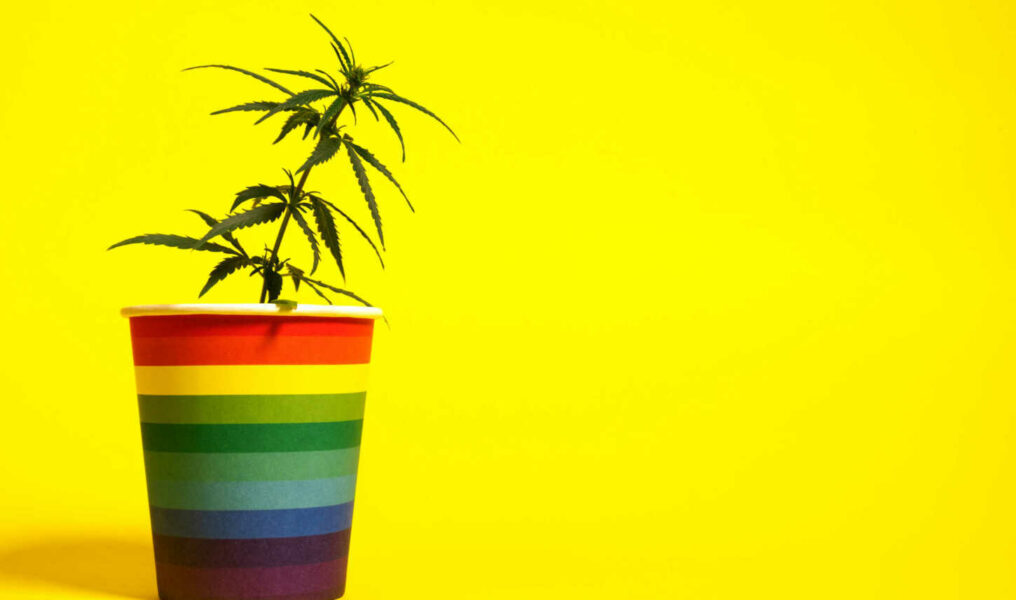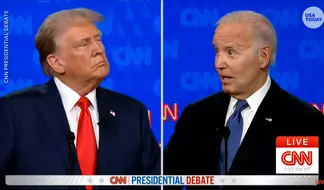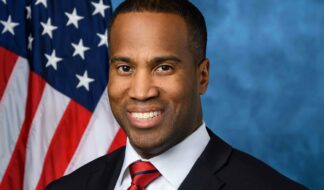Why We Must Defend LGBTQ+ Rights as We Decriminalize Cannabis
It's time for the rest of the country to catch up to Michigan

Courtesy of the National LGBT Media Association
On March 31, Kentucky became the 38th state to legalize medical cannabis. The same week, the state’s legislature overrode the governor’s veto to enact what the ACLU has called the “worst anti-trans bill in the country.” Kentucky is not an aberration. As the United States celebrates tremendous progress in the movement to decriminalize cannabis, at the same time, more than 400 pieces of anti-LGBTQ+ legislation have been introduced in statehouses around the country.
Michigan stands an outlier on both fronts, as part of the minority of states to legalize both medical and recreational cannabis use and as a proactive LGBTQ-supportive state that has passed multiple laws protecting the community. There are many opportunities for both movements to support one another throughout the state.
The progression of the LGBTQ+ movement and the cannabis justice movement are intricately intertwined, as activists in both movements have fought together for years. However, if we are to truly build an equitable and inclusive industry, the cannabis community must be vocal in its opposition to these acts of hate. This can’t be accomplished without the cannabis community taking an intersectional approach to the issue of cannabis justice.
Consider this. Mainstream cannabis justice research, rhetoric and culture all too often exclude the voices and experiences of LGBTQ+ communities. It bears repeating that queer and trans people have been overrepresented in incarceration and arrest rates. When we take a closer look at the women most impacted by carceral systems of policing and punishment, we see that queer and non-binary women are disproportionately impacted, making sexuality and gender identity factors that must be considered when trying to understand and solve criminal justice problems.
Last Prisoner Project’s Just Cannabis podcast, hosted by the organization’s director of impact, Mikelina Belaineh, creates a space for a discussion of these intersectional experiences. This way we can better understand how systems of policing and punishment distinctively and differently impact individuals who are LGBTQ+.
In order to survive, LGBTQ+ individuals are often pushed toward criminalized behaviors such as selling and using cannabis, which increases their risk of arrest and confinement.
A Prison Policy Initiative analysis of data from the National Survey on Drug Use and Health (NSDUH) reveals, “that in 2019, gay, lesbian, and bisexual individuals (with an arrest rate of 3,620 per 100,000) were 2.25 times as likely to be arrested in the past 12 months than straight individuals (with an arrest rate of 1,610 per 100,000).”
In trans populations, one in five (21%) trans women have experienced incarceration at some point in their lives. These statistics worsen when you account for race as nearly half (47%) of all Black trans people have been incarcerated.
And to be clear, these statistics likely undersell the disproportionate impact cannabis criminalization has on LGBTQ+ communities, as there is a shameful lack of data on the issue.
Given the stigma and discrimination against LGBTQ+ individuals that continues to run rampant in today’s cannabis community, it is important to acknowledge the power of solidarity when these two communities unite. This was evident in the recent push from public officials, cannabis leaders and members of the LGBTQ+ community when they advocated for the release of basketball superstar Brittney Griner.
There is much work still to be done to make progress in both the cannabis justice movement and LGBTQ+ civil rights movement. My hope is that our collaboration makes that work a little easier.
Stephen Post is a senior communications associate at Last Prisoner Project, a national, nonpartisan non-profit dedicated to cannabis criminal justice reform. We aim to release every last person incarcerated for cannabis, as well as to repair the harms of cannabis criminalization. We accomplish this through legal intervention, direct constituent support, advocacy campaigns and policy change. The National LGBT Media Association represents 13 legacy publications in major markets across the country with a collective readership of more than 400K in print and more than 1 million + online. Learn more here https://nationallgbtmediaassociation.com/









